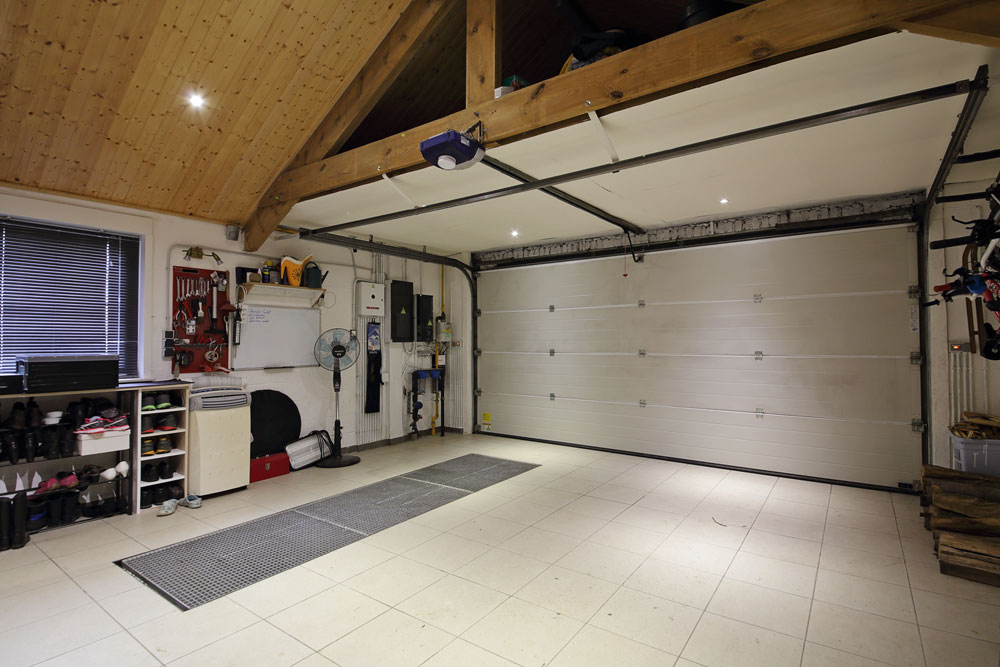How To Stop Mould In The Garage
 CONTENTS
CONTENTS
- What causes mould in garages?
- Is mould dangerous?
- How to remove mould from your garage
- How to prevent mould in the garage
- Contact us today
The garage's damp, dirty, and poorly ventilated conditions means that it's a hotspot for mould growth. You must bring in professional mould cleaners as soon as possible to protect your property and possessions against the harmful fungus.
Here at ICE Cleaning, we offer our mould removal services nationwide. Our nine-stage treatment process can eliminate all the mould in your property, including mould in the air. As a corporate member of Dewpoint Professional, we are qualified to cater to domestic and commercial properties.
Read on to learn more about how to stop mould growing in your garage.
What causes mould in garages?
Mould is a type of fungus that requires moisture, organic material, moderate temperatures, and oxygen to grow. In the confined space of a garage, it finds an ideal breeding ground due to specific conditions that allow it to flourish.
The primary culprit for mould infestations in garages is dampness. Whether from leaking pipes or seepage through walls, moisture accumulates and creates an environment where mould spores can settle and multiply. Combine this with inadequate ventilation—a common issue in many garages—and the humid air can get trapped in the space and make surfaces damp.
Garages also often contain plenty of organic materials like cardboard boxes and woodwork benches. Mould thrives in cars, too. It can quickly spread across a garage and the possessions stored there.
Another issue is the amount of damp possessions stored there, whether that is vehicles, shoes, or outdoor equipment.
A less obvious factor but equally important is temperature fluctuations within the space. When warm air cools down quickly it condenses on surfaces, making them damp. Garages often lack insulation compared to other parts of the home and therefore experience more extreme temperature changes.
Is mould dangerous?
Mould in your garage is not just an eyesore; it's a health hazard. Inhaling, ingesting, and touching spores can cause health issues like allergic reactions, asthma attacks, and respiratory problems. Exposure is especially hazardous for those with respiratory or skin conditions, elderly people, and young children.
Some types of mould also produce mycotoxins, toxic substances that can lead to more serious conditions, like fatal asthma attacks and sick building syndrome. A key sign of mould growth in your garage is showing symptoms of an allergic reaction when you enter it, such as sneezing or coughing.
Beyond the health concerns, it can cause property damage, too. Mould feeds on organic materials, causing them to degrade, weakening structures over time and leading to costly repairs.
How to remove mould from your garage
You may assume you can get rid of the mould with a DIY mould cleaning solution, like scrubbing the mould with some bleach, but this is not always reliable or safe. Mould removal is not just about cleaning visible growth - you must address the tiny invisible spores that help it spread.
Mould cleaning is dangerous without the right protective gear, as well, and you could put your health at risk during removal.
To effectively combat this issue, professional expertise is key. Specialists mould cleaners are equipped with the necessary tools and know-how to safely remove mould without spreading spores throughout your property or causing harm to themselves or others. They use high-grade equipment and methods tailored for the thorough eradication of all types of mould.
They will even be able to assess the extent of infestation and what has caused it. Having eliminated the mould, they will even provide advice on keeping your space mould-free moving forward. Professionals will also be able to safely remove mould in hard-to-reach areas, like mould on you garage ceiling.
How to prevent mould in the garage
Preventing the growth of mould in your garage is an absolute must, not only for keeping the structure intact but also to protect your wellbeing.
Improve ventilation
A well-ventilated space can discourage mould growth by reducing moisture levels. Start by ensuring that any existing vents are clear from obstructions. You might want to install additional air bricks or a mechanical extraction unit if natural ventilation is not cutting it.
Opening doors and windows regularly will also help circulate air and reduce humidity. Fresh air can even dry out damp areas.
Maintain low humidity levels
To keep humidity down, consider using a dehumidifier, especially during the winter months when condensation is more likely to occur on cold surfaces.
You should also waterproof garage walls with the appropriate sealants which can prevent external moisture seeping into your garage space.
Tackle leaks promptly
If you discover leaks, act fast. Water ingress provides perfect breeding grounds for mould colonies so fix any roof or pipe leaks as soon as you spot them.
You should inspect your garage regularly looking out for these issues so you can have small ones sorted out before they become big problems.
Contact us today
We operate day and night, 365 days a year, including bank holidays. If it's an emergency, we can be on site within several hours.
Get in touch with our team on 0208 066 0360 or enquiries@icecleaning.co.uk to get a free site survey and no-obligation quote for our mould remediation services.

Speak with me today,
I’m here to help
By asking you a few questions either via phone or email I can immediately provide a realistic estimation of the cost.
You’re in good company. We’ve cleaned for the following commercial clients… View all

Why choose us?
- Cater to a wide variety of cleaning situations
- Nationwide coverage, available 24/7
- Cater to commercial and domestic clients
- Free survey provided prior to quotation
- Emergency response team
- Offer a bespoke service designed to suit all your needs
- All technicians hold professional health and safety qualifications, including BICSc, IOSH, Dewpoint Professional & Safe Contractor
We’re fully accredited
We place best practise, professional expertise and health and safety at the core of our business. We’re fully compliant with all legal obligations. You can view a list of our accreditations below, or visit our Health & Safety page for more information.











-RGB-small.1707319151.jpg)




















